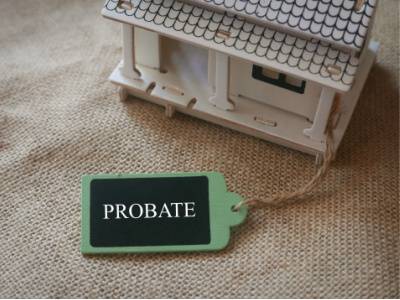What Is a Breach of Fiduciary Duty in a Probate Case?
 In the state of Texas, the estate of a person who passes away will go through a legal process known as probate. In these cases, a person is appointed as the executor or personal representative of the estate. This person will manage and distribute the deceased person's assets. The executor has a fiduciary duty to act in the best interests of the beneficiaries and handle all matters related to the estate with honesty, loyalty, and care.
In the state of Texas, the estate of a person who passes away will go through a legal process known as probate. In these cases, a person is appointed as the executor or personal representative of the estate. This person will manage and distribute the deceased person's assets. The executor has a fiduciary duty to act in the best interests of the beneficiaries and handle all matters related to the estate with honesty, loyalty, and care.
A breach of fiduciary duty occurs when the executor fails to fulfill their obligations and acts in a manner that harms or disadvantages the beneficiaries. In these situations, beneficiaries may work with an attorney to pursue probate litigation and address the executor’s wrongful actions. Breaches of fiduciary duty can take various forms, and they may include:
Mismanagement of Assets
The executor has a responsibility to safeguard an estate’s assets and ensure that they are properly accounted for throughout the probate process. If the executor fails to do so by mishandling funds, making poor investment decisions, neglecting to maintain property, or otherwise causing the estate to decrease in value due to negligence, they may be held liable for the losses the beneficiaries have suffered as a result of this mismanagement.
Self-Dealing
An executor must always prioritize the interests of beneficiaries over their own personal gain. Self-dealing occurs when an executor uses their position for personal benefit rather than acting solely in accordance with their fiduciary duties. Examples include taking unauthorized fees from estate funds or purchasing estate assets at below-market prices for personal use. In these cases, an executor may be required to reimburse the estate for the amounts they personally gained at the expense of beneficiaries.
Fraudulent Activity
In some cases, executors may engage in fraud during probate proceedings. This could involve forging documents, concealing assets from beneficiaries, providing false information about debts or claims against the estate, or intentionally misrepresenting facts related to distribution. Accusations of fraud may lead to criminal charges in addition to being held liable for a breach of fiduciary duty.
Neglecting Responsibilities
An executor has a duty to diligently carry out their responsibilities, which include filing necessary paperwork, paying the estate’s debts and taxes, distributing assets in a timely manner, and providing accurate accounting reports to beneficiaries and the court. Neglecting these duties or failing to communicate with beneficiaries can be considered a breach of fiduciary duty.
Conflict of Interest
If an executor cannot act impartially on behalf of the estate and its beneficiaries, this may be considered a breach of fiduciary duty. This could occur if the executor is also a beneficiary or if they have personal relationships or financial interests that create bias in decision-making. If a person’s interests conflict with the interests of beneficiaries, they may be removed as the executor, and another representative may be appointed.
Contact Our San Antonio Probate Litigation Attorney
If you believe that an executor or personal representative has breached their fiduciary duties when handling your loved one's estate during probate proceedings, The Law Office of Ryan C. Moe, PLLC is here to help. We understand how challenging these situations can be, and we are dedicated to advocating for your rights as a beneficiary. Our Bexar County fiduciary litigation lawyer can help determine whether there has been misconduct by the executor, and we will work with you to take appropriate legal action to protect the rights and interests of the beneficiaries. Contact us today at 210-861-6000 to discuss these issues in a confidential consultation.







